#medical billing and coding services
Text
Innovative Technologies in Revenue Cycle Management for Healthcare

Revenue Cycle Management (RCM) is a critical aspect of healthcare administration, encompassing the financial processes related to patient care, from registration and scheduling to final payment of balances. In an era of rapid technological advancement, innovative solutions are transforming RCM, enhancing efficiency, accuracy, and profitability for healthcare providers. This article explores some of the cutting-edge technologies revolutionizing Revenue Cycle Management healthcare.
1. Artificial Intelligence (AI) and Machine Learning (ML)
AI and ML are at the forefront of innovation in RCM. These technologies analyze vast amounts of data to identify patterns, predict outcomes, and automate complex processes. Here’s how they are making an impact:
Predictive Analytics: AI can predict patient payment behaviors, helping providers to tailor their billing approaches and improve collection rates.
Automated Coding: Machine learning algorithms can analyze clinical notes and automatically assign accurate medical codes, reducing the likelihood of errors and speeding up the billing process.
Denial Management: AI-driven tools can identify trends in claim denials and provide actionable insights to prevent future denials, enhancing overall revenue recovery.
2. Robotic Process Automation (RPA)
RPA involves using software robots to automate repetitive, rule-based tasks within RCM. This technology streamlines workflows, reduces human error, and frees up staff to focus on more complex tasks. Key applications of RPA in RCM include:
Claim Submission: Bots can automate the submission of insurance claims, ensuring they are filed promptly and accurately.
Payment Posting: RPA can automatically post payments from insurance companies and patients to the appropriate accounts, speeding up the revenue cycle.
Eligibility Verification: Robots can verify patient insurance coverage and benefits in real-time, reducing claim denials due to eligibility issues.
3. Blockchain Technology
Blockchain technology, known for its security and transparency, offers promising applications in RCM. It creates an immutable ledger of transactions, which can enhance the accuracy and trustworthiness of financial records. Benefits of blockchain in RCM include:
Fraud Prevention: The transparent and tamper-proof nature of blockchain helps prevent fraudulent billing activities.
Seamless Data Exchange: Blockchain enables secure and efficient sharing of patient data and billing information among providers, payers, and patients, reducing administrative burdens and errors.
Smart Contracts: These self-executing contracts with predefined rules can automate payment processes, ensuring timely and accurate reimbursements.
4. Cloud-Based Solutions
Cloud technology is revolutionizing data storage and access in healthcare. Cloud-based RCM solutions offer several advantages:
Scalability: Cloud solutions can easily scale to accommodate the growing needs of healthcare providers, from small practices to large hospital systems.
Accessibility: Authorized users can access RCM systems from anywhere, facilitating remote work and improving collaboration.
Cost Efficiency: Cloud-based solutions reduce the need for on-premises IT infrastructure and maintenance, lowering operational costs.
5. Telehealth Integration
The rise of telehealth has introduced new complexities in billing and coding. Innovative RCM technologies are now integrating telehealth services seamlessly. Features include:
Telehealth-Specific Codes: Automated systems ensure that telehealth services are billed correctly with appropriate codes.
Virtual Payment Solutions: Integrated platforms allow patients to make payments for telehealth services easily, enhancing the patient experience and improving collection rates.
Real-Time Eligibility Checks: Tools that verify patient eligibility for telehealth services in real-time, preventing coverage issues and denials.
6. Patient Engagement Platforms
Engaging patients effectively is crucial for optimizing revenue cycles. Modern patient engagement platforms offer a range of features that streamline interactions and improve financial outcomes:
Automated Reminders: These platforms send automated appointment and payment reminders, reducing no-shows and late payments.
Online Payment Portals: Secure online portals enable patients to view and pay their bills conveniently, enhancing collection rates.
Personalized Communication: AI-driven tools can tailor communications based on patient preferences and behaviors, improving satisfaction and compliance with payment plans.
7. Data Analytics and Business Intelligence
Advanced data analytics and business intelligence tools provide healthcare providers with deeper insights into their financial performance. These technologies enable:
Revenue Cycle Dashboards: Real-time dashboards display key performance indicators (KPIs) and financial metrics, helping providers monitor and improve their revenue cycles.
Trend Analysis: Analytics tools identify trends in claims, payments, and denials, enabling proactive management and strategic decision-making.
Benchmarking: Providers can compare their performance against industry standards and peers, identifying areas for improvement and implementing best practices.
Conclusion
Innovative technologies are transforming Revenue Cycle Management healthcare, making it more efficient, accurate, and patient-centered. From AI and RPA to blockchain and cloud-based solutions, these advancements are helping healthcare providers navigate the complexities of billing and coding, improve financial performance, and enhance the patient experience. By embracing these technologies, healthcare organizations can optimize their revenue cycles and ensure long-term sustainability in an increasingly competitive and regulated environment.
0 notes
Text
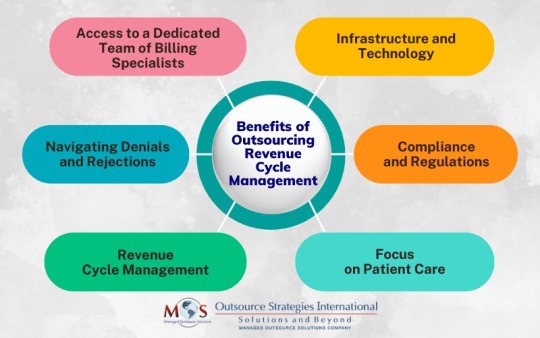
Benefits of Outsourcing Revenue Cycle Management
Fed up of managing medical billing & collections in your practice? Outsourcing revenue cycle management (RCM) can free up your staff's time, improve cash flow, and reduce errors. Call us to learn how our expert medical billing and coding services can save you time and money.
0 notes
Text
youtube
#Medical billing services#medical billing and coding services#revenue cycle management services#medical billing in rcm#healthcare coding services#affordable medical billing services#medical billing in US#Youtube
0 notes
Text
Denial analysis is an important aspect of medical billing that helps healthcare providers understand the reasons why their insurance claims are being rejected. In addition, understanding the reasons behind denials can help providers take the necessary steps to prevent future denials and improve their overall billing process. This article will explore the steps you can take to get the most out of your denial analysis in medical billing.
#denial analysis in medical billing#Medical Billing Services in USA#American Medical Response Billing#Medical Billing and Coding Services
0 notes
Text
Streamlining Your Revenue Cycle: How Medical Billing Companies Can Help
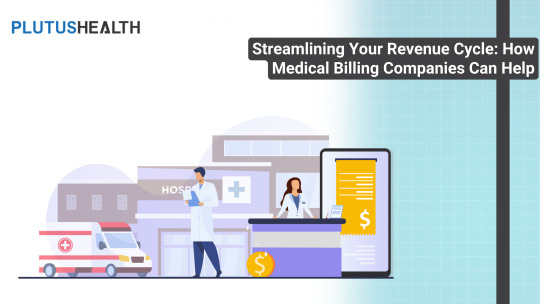
Medical billing services are essential for healthcare providers to receive timely and accurate reimbursement. Medical RCM is a complex process that involves coding and submitting clean claims, following up on denied claims, posting payments, and handling patient billing and collections. It requires specialized knowledge and expertise that many healthcare providers still need.
Outsourcing medical billing services to professionals can help practices streamline their healthcare revenue cycle management and improve their financial performance. This article will explain the benefits of partnering with a medical billing company, how to choose the right provider, and the services offered by top companies.
Benefits of partnering with a medical billing company
Improved revenue cycle management
Effective revenue cycle management is critical for healthcare providers to ensure timely and accurate service reimbursement. Medical billing companies like Plutus Health can help healthcare providers optimize their revenue cycle management by identifying inefficiencies in their billing processes, monitoring claims submissions and denials, and implementing best practices for revenue cycle management.
Medical billing companies have access to advanced technology and software that can automate many billing processes, reducing the risk of errors and delays. They also have a team of expert billers and coders who stay up-to-date with the latest billing regulations and requirements, ensuring that claims are submitted correctly and promptly.
Reduced administrative burden
Medical billing is a time-consuming and labor-intensive process that requires significant administrative resources. Outsourcing medical billing services to professional healthcare revenue cycle management providers can help practices reduce their administrative burden, allowing them to focus on patient care and other core activities.
Professionals can handle all aspects of the billing process, from claims submissions and denial management to patient billing and collections. It can free up healthcare providers' time and resources, enabling them to devote more attention to patient care and other critical activities.
Access to expert billing knowledge and technology
Medical billing is a complex and ever-changing field that requires specialized knowledge and expertise. Medical billing companies have a team of expert billers and coders who have in-depth knowledge of the healthcare industry, medical billing regulations, and insurance requirements.
Medical billing companies also have access to advanced technology and software that can automate many billing processes, reducing the risk of errors and delays. It help healthcare providers save time and resources while ensuring timely and accurate reimbursement.
How to choose the right medical billing company?
Choosing the right medical billing company is critical for healthcare providers to optimize their revenue cycle management and maximize their financial performance. When selecting a provider, practices should consider many factors, including:
Experience and expertise
Reputation and track record
Service offerings and capabilities
Technology platforms and integrations
Pricing models and fee structures
Customer service and support
Healthcare providers should also ask questions during the evaluation process, such as:
How long have you been in business?
What types of healthcare providers do you serve?
What is your process for handling denied claims?
What technology platforms do you use?
What is your pricing model?
How do you handle customer service and support?
Medical billing services offered by top companies
Medical billing companies like Plutus Health offer many services to help healthcare providers optimize their revenue cycle management and maximize their financial performance. Some of the key services offered by top companies include:
Claims submission and tracking: Medical billing companies can handle all aspects of claims submissions, from coding and billing to submission and tracking. They can also monitor claims for errors and omissions, ensuring they are submitted correctly and on time.
Payment posting and reconciliation: Medical billing companies can post payments and reconcile accounts, ensuring that healthcare providers receive timely and accurate reimbursement for their services.
Denial management and appeals: Medical billing companies can seamlessly handle denials and appeals, identifying the root cause and appealing denied claims on behalf of healthcare providers.
Patient billing and collections: Medical billing companies can handle patient billing and collections, ensuring that patients are billed appropriately and promptly and that collections are handled professionally and efficiently.
How medical billing companies differ from one another
Not all medical billing companies are created equal. There are many factors that differentiate medical billing companies from one another, including:
Pricing models and fee structures: Medical billing companies may charge a percentage of collections, a flat fee per claim, or a hybrid model. Healthcare providers need to understand the pricing model and fee structure of each medical billing company they consider, as this can significantly impact their financial performance.
Technology platforms and integrations: Medical billing companies may use different technology platforms and integrations to automate their billing processes and improve efficiency. Healthcare providers must understand the technology platforms and integrations used by each medical billing company they consider, as this can impact the quality and accuracy of their billing services.
Customer service and support: Medical billing companies may offer different levels of customer service and support, including dedicated account managers, 24/7 support, and online portals for tracking claims and payments. Healthcare providers must understand the customer service and support offered by each medical billing company they consider, as this can impact their satisfaction and overall experience.
Conclusion Outsourcing medical billing services to a professional medical billing company can help healthcare providers optimize their revenue cycle management and financial performance. You can consult Plutus Health for your end-to-end medical RCM services. They have been in the healthcare RCM industry for 15+ years and have shown exceptional results for their clients. Click here to contact Plutus Health’s medical billing and coding experts.
#medical billing company#medical billing services#plutushealthinc#best medical billing companies#medical billing and coding services#medical coding services companies
0 notes
Link
Medscribe360 provides Virtual Medical Scribe Service, virtual scribe service, virtual medical charting, virtual medical scribe, virtual medical scribe companies, EMR Scribe Service, Virtual Medical Documentation, Live Medical Record Documentation, Medical Transcription, medical transcription services, medical transcription services USA, medical virtual scribe, revenue cycle audit.
Medical Billing Service, Medical Billing Company, Certified Medical Billers, Certified Medical Coders, RCM Analytics Tools, EMR Billing Experts
check out the link for more :
https://medscribe360.com/medical-transcription-services-usa/
#medical transcription#medical transcription services#medical billing and coding services#medical billing & coding#medical scribe#medscribe360
0 notes
Text
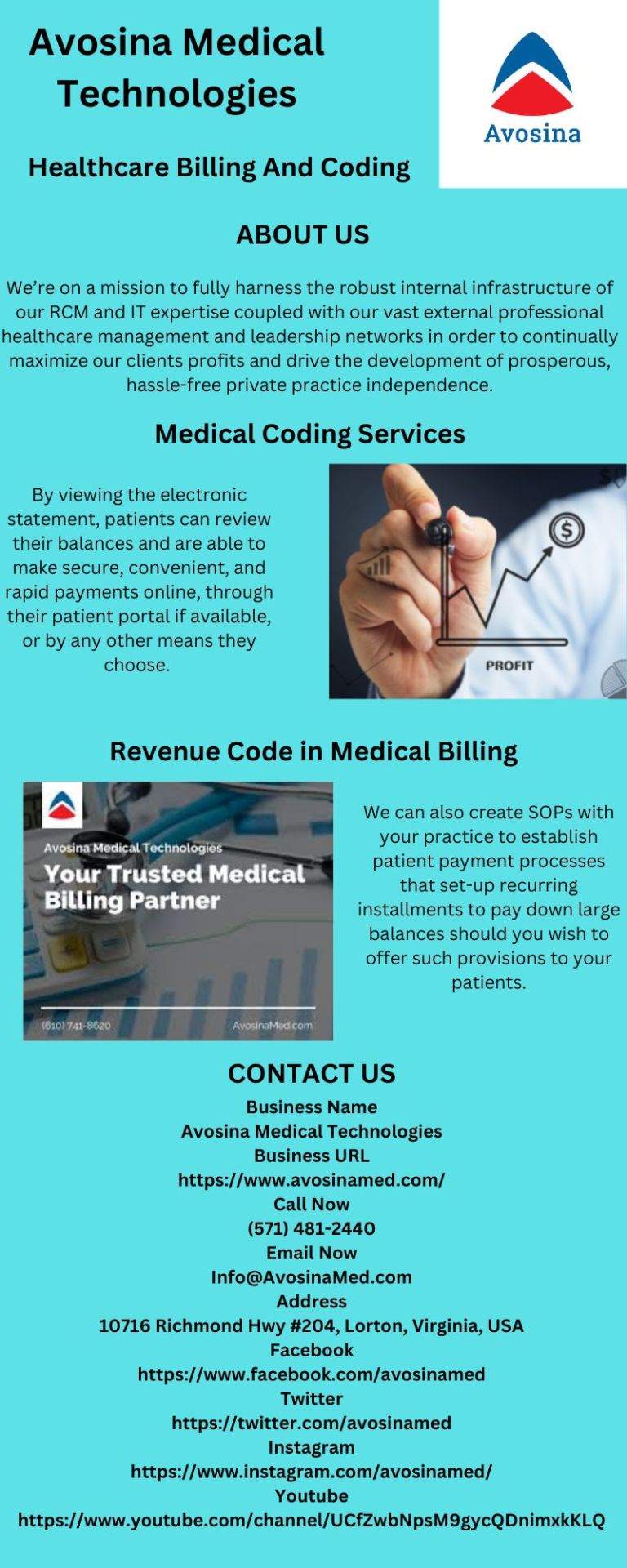
Value We Add to You with Avosina’s Denial Management Services. Critical to our denial management process is efficiency in rapid reimbursement turnaround, maximization of payment, and strategically denial prevention. For more information to visit our website https://www.avosinamed.com/ or feel free to contact us.
#Revenue Cycle Management#Revenue Cycle Solutions#Medical Coding Services#Revenue Code in Medical Billing#Medical Billing And Coding Services#Healthcare Billing And Coding#Medical Billing Management
0 notes
Link
#dermatology medical billing#medical billing and coding companies#medical billing and coding services
0 notes
Link
#Medical Billing Company In California#Outsource Medical Billing Company In California#best medical billing company In California#medical billing and coding services#physician billing#DME & HME billing
0 notes
Text
CPC COACHING CENTERS IN HYDRERABAD
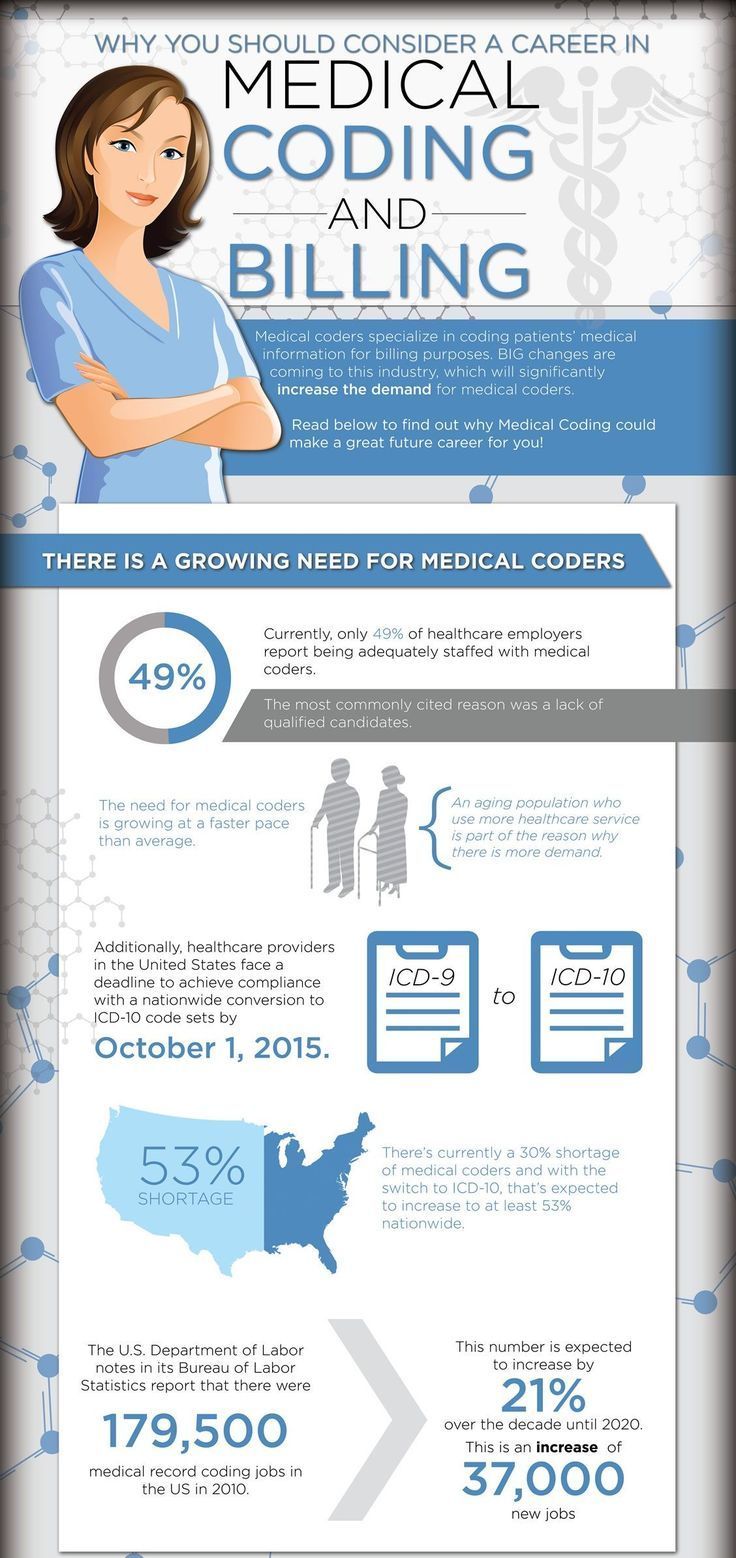
Thought Flows Academy, revolutionizing medical coding education since 2016, is the preferred destination in Hyderabad. As the top medical coding training institute, our 20,000 success stories and advanced CPC coaching centers make us the epitome of success in south India. Join our 6-year legacy of shaping skilled professionals and unlocking endless opportunities.
#medical billing agencies near me#medical billing outsourcing#medical billing services#medical billing service provider#medical billing company#medical coding#medical billing solutions#medical billing and coding#medical billing software#medical bill
2 notes
·
View notes
Text
The Importance of Effective Revenue Cycle Management in Healthcare

In today's rapidly evolving healthcare landscape, financial stability and operational efficiency are paramount for any healthcare provider. At the heart of this stability lies effective Revenue Cycle Management (RCM). Revenue Cycle Management Healthcare encompasses all administrative and clinical functions that contribute to the capture, management, and collection of patient service revenue. It starts with patient registration and scheduling and extends through to the final payment of a balance. Effective RCM is critical to ensuring that healthcare organizations can deliver high-quality care while maintaining financial viability.
Enhancing Financial Performance
One of the primary reasons for the importance of effective RCM is its direct impact on a healthcare organization's financial performance. Efficient RCM processes ensure that billing and collections are handled promptly and accurately. This leads to improved cash flow and reduces the time between providing a service and receiving payment. By minimizing errors in coding, billing, and claims processing, healthcare providers can significantly reduce the rate of denied claims, which are costly and time-consuming to address.
Moreover, effective RCM helps in optimizing reimbursement rates. With a clear understanding of payer contracts and regulations, healthcare providers can ensure that they are correctly billing for services rendered. This is especially critical as healthcare reimbursement models shift towards value-based care, where the focus is on the quality rather than the quantity of services provided.
Reducing Administrative Burdens
Healthcare providers face a myriad of administrative tasks related to billing and collections. These tasks can be overwhelming and distract from the core mission of providing patient care. Effective RCM solutions streamline these processes through automation and advanced analytics. By leveraging technology, healthcare organizations can automate routine tasks such as appointment scheduling, patient eligibility verification, and claims submission.
This automation not only reduces the administrative burden on healthcare staff but also decreases the likelihood of human error. As a result, staff can focus more on patient care and other critical functions, leading to an overall improvement in the efficiency and productivity of the healthcare organization.
Improving Patient Satisfaction
Revenue Cycle Management also plays a crucial role in enhancing patient satisfaction. Patients today expect transparency and convenience when it comes to their healthcare experience. Effective RCM ensures clear and accurate billing, which helps in building trust and satisfaction among patients. By providing patients with accurate estimates of their financial responsibility upfront and offering multiple payment options, healthcare providers can improve the patient experience.
Additionally, streamlined RCM processes reduce the occurrence of billing errors and unexpected charges, which are common sources of patient dissatisfaction. By addressing these issues proactively, healthcare
organizations can foster better relationships with their patients, leading to higher levels of patient loyalty and retention.
Navigating Regulatory Compliance
The healthcare industry is heavily regulated, and non-compliance with regulations can result in severe financial penalties and reputational damage. Effective RCM is essential for ensuring compliance with various healthcare laws and regulations, including the Health Insurance Portability and Accountability Act (HIPAA), the Affordable Care Act (ACA), and other payer-specific requirements.
A robust RCM system incorporates comprehensive compliance checks and balances to ensure that all billing and coding practices adhere to the latest regulatory standards. This not only mitigates the risk of audits and fines but also ensures that the healthcare organization operates within the legal framework, maintaining its integrity and trustworthiness.
Adapting to Industry Changes
The healthcare industry is constantly evolving, with changes in reimbursement models, patient demographics, and technological advancements. Effective RCM enables healthcare organizations to adapt to these changes seamlessly. For instance, as the industry shifts towards value-based care, RCM systems must be capable of handling new types of payment models and quality metrics.
Furthermore, with the rise of telehealth and digital health services, RCM systems need to integrate with new technologies and platforms. An adaptable RCM system ensures that healthcare organizations can stay ahead of industry trends and continue to thrive in a dynamic environment.
Conclusion
In conclusion, effective Revenue Cycle Management Healthcare is indispensable for the financial health and operational efficiency of healthcare organizations. By enhancing financial performance, reducing administrative burdens, improving patient satisfaction, ensuring regulatory compliance, and adapting to industry changes, robust RCM processes enable healthcare providers to focus on their primary mission: delivering high-quality patient care. As the healthcare landscape continues to evolve, the importance of effective RCM will only grow, making it a critical component of any successful healthcare organization.
0 notes
Text
How accurate and compliant coding minimizes Denials
Accurately translating medical documentation into appropriate codes and meeting regulatory compliance is essential for submitting clean claims. Accurately translating medical documentation into appropriate codes requires expertise and many providers are turning to professional medical coding services to report their services correctly on claims. https://www.outsourcestrategies.com/blog/importance-accurate-compliant-coding-minimizing-denials/
0 notes
Text
Maximizing Reimbursement with CPT Codes
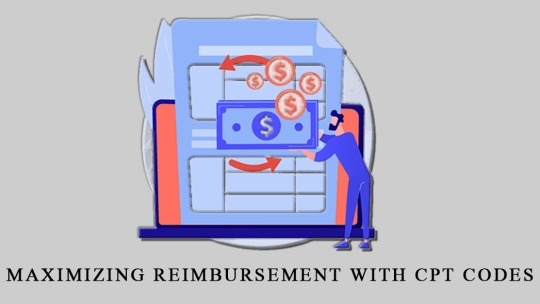
Reimbursement of healthcare services is an easy method of putting CPT codes on claim forms. In reality, it is a complex matter and requires a team approach to accomplish timely filing to receive accurate and fair reimbursement. CPT (Current Procedural Terminology) codes are commonly used in the medical profession to report medical services, procedures, and services of healthcare professionals. These codes play a crucial role in determining reimbursement from insurance companies. CPT (Current Procedural Terminology) codes are critical factors in maximizing reimbursement. The article will discuss some tips that help to optimize reimbursement with the CPT (Current Procedural Terminology) codes. Read More…
For further details and daily updates, Follow us on LinkedIn or Visit.
#medical billing outsourcing#medical billing service companies#healthcare#medical billing solutions#hospital#medical billing florida#physician#cardiology#cpt codes
3 notes
·
View notes
Text
If you're a healthcare professional, it's important to have a reliable billing professional on your team. Why? Because billing is a huge part of running a successful practice. Here are some benefits of hiring a medical billing professional:
#Denial Analysis in Medical Billing#Medical Billing Services in USA#American Medical Response Billing#Medical Billing and Coding Services
0 notes
Text
Maintaining compliance and integrity in revenue cycle management presents ongoing obstacles given the ever-changing regulatory landscape, intricate billing processes, and the risk of fraudulent activities. Precision in coding, timely documentation, and robust data security are essential to uphold revenue cycle management compliance and mitigate revenue loss.
For further insights into our approach to regulatory compliance, feel free to contact us.
#rcm#medical billing and coding#healthcare#medical billing outsourcing#medical billing services#medicalbilling#QWay#QWay HealthCare#Billing Accuracy#Regulatory Compliance#precise billing
0 notes